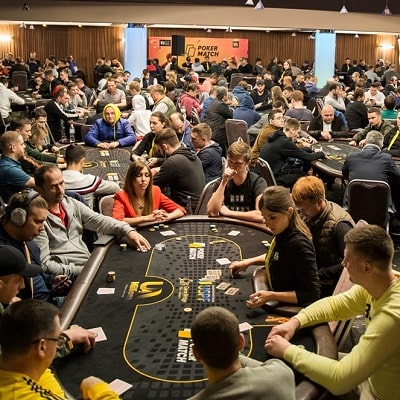
When Did Poker Appear as a Sports Discipline?
Poker has long been associated with gambling, skill, and strategy, but its emergence as a sports discipline is a relatively modern development. While the game itself has roots stretching back to the early 19th century, it wasn’t until the late 20th and early 21st centuries that it began to be formally recognized as a sport. This recognition is largely attributed to the rising popularity of professional tournaments and the legitimization efforts by poker organizations and television networks.
Sports Poker – What Is It?
Sports poker is a variant of poker where the focus shifts from merely a game of chance to a competitive activity that requires skill, strategy, and mastery. Unlike traditional poker, sports poker is played in a structured environment, usually in the form of tournaments. These tournaments are not just about winning money but about demonstrating skill and strategy at a high level.
Is Poker a Special Game?
The uniqueness of poker lies in its blend of skill and chance. While many other card games rely heavily on luck, poker also requires a deep understanding of strategy, psychology, and game mechanics. The very best players employ a variety of skills, including the ability to read opponents, make mathematical calculations on the fly, and adapt strategies depending on the game’s situation. This unique blend has led to the acceptance of poker as a game that can be played at a competitive level, much like chess or other mind sports.

Regular Poker and Sports Poker – What Are the Differences?
While the fundamental rules of poker remain consistent, the objectives and environments of regular and sports poker are different:
- Environment: Regular Luckland casino online poker can be played anywhere from regular home games to online platforms, while sports poker is usually played in official organized tournaments.
- Objective: The objective in regular poker is often recreational or financial gain. In contrast, sports poker aims at competition and mastery of the game.
- Training: Sports poker players often have a more disciplined approach, including rigorous training and strategic planning.
The Birth of the WSOP
The World Series of Poker (WSOP) played a significant role in elevating poker to a sports discipline. First held in 1970, the WSOP was an invitation-only event, intended to bring together the best players in the country. Over the years, it has evolved into a series of tournaments attracting players from around the world, awarding millions of dollars in prize money and offering coveted championship bracelets.
When Did Professional Tournaments Appear?
The late 20th century witnessed the emergence of professional poker tournaments, but the real boom came with the advent of online platforms and televised events in the early 21st century. Tournaments like the European Poker Tour (EPT) and the PokerStars Caribbean Adventure (PCA) began attracting large audiences, both in-person and via broadcasts, thereby solidifying poker’s status as a sport.
Conclusion
The journey of poker from a casual game to a recognized sports discipline has been both fascinating and complex. Thanks to professional tournaments such as the WSOP and the evolving perception of the game as one based on skill rather than just luck, poker at Luckland casino online has carved out its own niche in the world of competitive sports. Whether you’re a casual player or an aspiring professional, understanding this transformation offers a deeper appreciation of the game and its unique blend of skill, strategy, and psychology.
